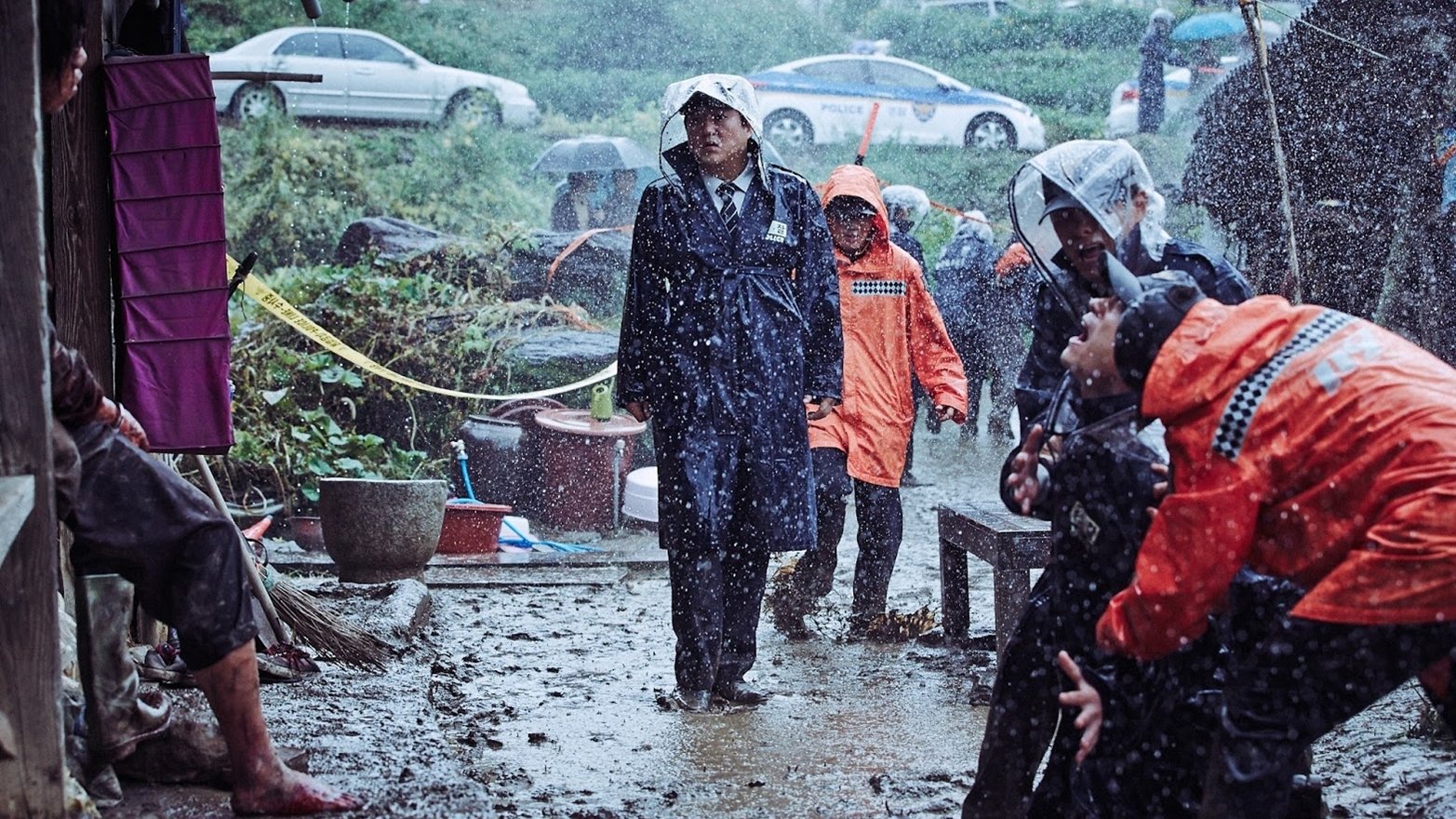
MPAA Rating: NR | Rating: ★★
Release year: 2016
Genre: Fantasy, Horror, Mystery, Thriller Director: Hong-jin Na
A mystery-horror-thriller-fantasy-comedy-drama, the Korean film The Wailing is a swirl of genre conventions that feels like a postmodern experiment in subverting its audience’s expectations. The viewer is strung along in this darkly spiritual police procedural into a downward spiral of cynicism and despair, unable to grasp onto any clear understanding of reality or truth, apart from this basic premise: evil exists, and it cannot be stopped. When a small village experiences a string of sudden violent murders, with each killer suffering the same zombie-like disease symptoms, a sense of paranoia sets in, prompting bumbling police officer Jong-goo (Do Won Kwak) to seek the true motives behind the presence of a mysterious Japanese stranger (Jun Kunimura).
There are some genuine moments of dread and suspense as filmmaker Hong-jin Na creatively keeps a variety of narratives and characters in balance. At two key points in the film, the narrative has to jump between 3-4 simultaneous situations or conversations happening in different locations. Through a keen sense of timing and editing, the rhythm of these perspective shifts makes sense to the viewer (even when what’s actually happening in each situation may not make much sense at all). The wonderful cinematography and excellent use of various locations creates a pervasive feeling of uneasiness–something clearly deadly and evil is happening within this village, and the answers are not coming quickly enough. Salvation is uncertain in The Wailing; perhaps it’s even impossible. There is a near-constant rain or cloudiness throughout the film, creating an oppressive, grayed-out environment for these characters to navigate. Jong-goo–a highly unlikeable character who suffers from the horror trope of “Does Something Stupid To Keep The Scary Plot Moving Along”–is constantly slipping in this wet-and-weary world, never seeming to respond beyond screaming or blathering helplessly.
The Wailing features an elaborate and colorful exorcism scene when Jong-goo’s daughter appears to be possessed by some sort of demonic spiritual force. The shaman (Jung-min Hwang) performs an elaborate and eye-popping ceremony, featuring dancing, chanting, bells, fire, swords, and various farm animals, all for the sake of casting out the devil. While other horror films would place such a scene in the climax, The Wailing plants this exorcism squarely in the middle of the narrative, subverting the typical horror audience’s expectations. It feels like the entire film is meant to mess with audience, shifting our understanding of various characters one way, then back again. Who is the true evil presence in this village? How can this villain be stopped? The Wailing doesn’t offer easy answers; it doesn’t really offer answers at all.
There is an underlying theme about xenophobia here, one which feels relevant in our current political climate. Yet any attempts the film tries to make to critique xenophobia and fear of the outsider is annihilated in its final act, where it appears that the stranger(s) in the midst of the people are, in fact, the true danger. Instead of confronting and condemning suspicions of the outsider, The Wailing actually seems to promote a xenophobic agenda, where the alien and stranger should be feared or destroyed. Perhaps I am misreading the overall message, and those who’ve seen it can correct me if I’m wrong, but from what I saw on the screen, evil is an outside force which brings out the worst in a community.
The film opens with a quote from Luke 24 about the resurrection of Jesus, where he explains that he isn’t a ghost because he has a physical body. The spirituality within The Wailing is a mixture of Eastern folklore and Western Christianity; it’s also a very physical spirituality, with spiritual beings having clear physical forms and capacities. Within the worldview of The Wailing, if the devil moved in next door to you, he or she might have to take the bus or shop in the market for food. While I appreciated this nod to Christianity in the opening moments, the rest of the film seems to subvert the church, featuring a priest-in-training who is often the essence of weakness or frailty in his few scenes. In a scene with a priest, the man tells Jong-goo that the church can be of no help to him or his suffering daughter. Instead of offering any wisdom or comfort, the church essentially puts its hands over its eyes in an attempt to ignore evil. And when the evil is finally confronted, none of the characters are of any help, especially the Christian ones. The film promotes a strangely spiritual version of nihilism–neither individual nor institution can save you once the devil arrives at your door, so you might as well give up. If that sounds like a film you’d like to spend over 2.5 hours with, you’re quite welcome to watch and consider what The Wailing has to offer.
IMDB Listing: http://www.imdb.com/title/tt5215952/